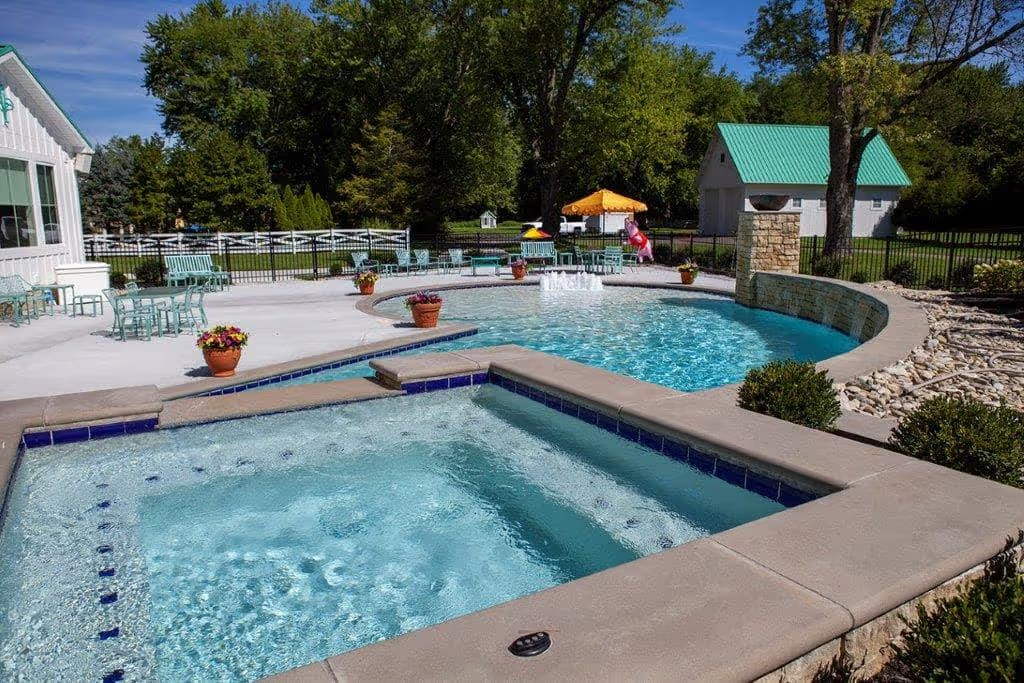- Stone Center
- Blog
7 Porcelain Tile Flooring Pros and Cons: Weighing the Options
27/11/2025
8/8/2025
7 Porcelain Tile Flooring Pros and Cons: Weighing the Options

Looking for a flooring upgrade that's both stylish and incredibly durable? Porcelain tile might be the perfect fit for your Cincinnati or Columbus home! This popular material offers a stunning combination of elegance and practicality, making it a favorite among homeowners and designers alike.
But before jumping on the porcelain bandwagon, it's smart to consider all the factors. Let's dive into the pros and cons of porcelain tile flooring to help you decide if it's the right choice for your lifestyle and home's unique character.
What Is Porcelain Tile?
Porcelain tiles are a premium type of ceramic tile made from refined clay and fired at extremely high temperatures — over 2,000°F! This intense heat creates an incredibly dense, hard surface that's tougher than traditional flooring materials.
The result? A versatile and beautiful flooring option ideal for homes and businesses, known for its resilience and stunning designs. Unlike standard ceramic tile, porcelain is denser, more uniform, and significantly more durable, making it the ideal upgrade from traditional flooring materials.
Porcelain Tile Advantages
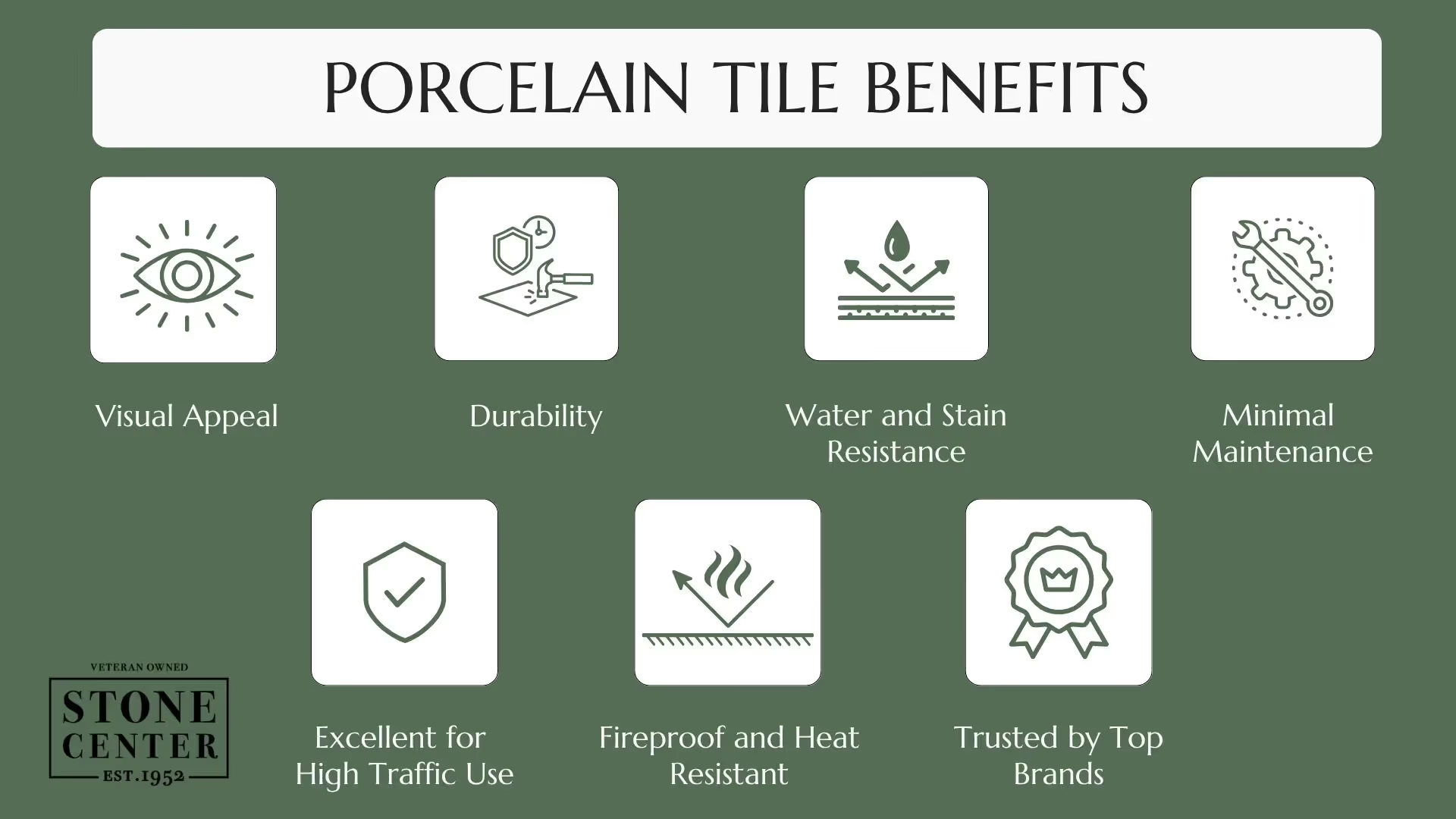
#1. Stunning Visual Appeal
Porcelain offers an incredible range of design options that can mimic everything from natural stone to wood grain patterns. Whether you're drawn to the elegance of marble-look tiles or prefer the rustic charm of wood-effect porcelain, there's a style to match every aesthetic. Modern manufacturing techniques can create intricate patterns and various colors that were once impossible to achieve.
Tiles like Vulkon Nero are perfect examples — bold, sophisticated, and full of personality. However, these floor tiles aren’t just pretty. They're incredibly strong and can handle the wear and tear of both indoor and outdoor environments.
#2. Porcelain Tile Floor Is Highly Durable
If you're wondering how durable porcelain tile is, know that some of the most durable flooring types include those that are made from fired clay. Porcelain tile durability is at a high level because it is produced at higher temperatures and pressure. It is made from high-quality components that are highly resistant to scratches and stains, appealing to many homeowners and business owners who need flooring in high-traffic areas.
Want a reliable metric? Look for a PEI (Porcelain Enamel Institute) rating of 4 or 5. This indicates that the tile is tough enough for heavy residential and commercial use.
#3. Water and Stain Resistance
If you're considering porcelain tile installation in an area that gets exposed to a high amount of water, this is another benefit of porcelain tile floors. Overall, it has fewer air pockets and it's a dense material, meaning porcelain floor tiles are harder and thicker than other natural stone options you might be considering.
The stain resistance is equally impressive. Porcelain's smooth surface prevents spills from penetrating and creating permanent discoloration. Even the most stubborn stains can be removed with minimal effort and standard cleaning products.
#4. Minimal Maintenance Required
Imagine spilling a glass of red wine or tracking in muddy paw prints. With porcelain tile, there's no need to panic. The dense, non-porous surface prevents liquids and stains from seeping in, making cleanup a breeze.
Forget about special sealants or harsh chemicals. Regular sweeping, mopping with a mild detergent, and occasional spot cleaning are all you need to maintain porcelain tile's pristine beauty for years to come. This translates to less time scrubbing and more time enjoying your stunning floors.
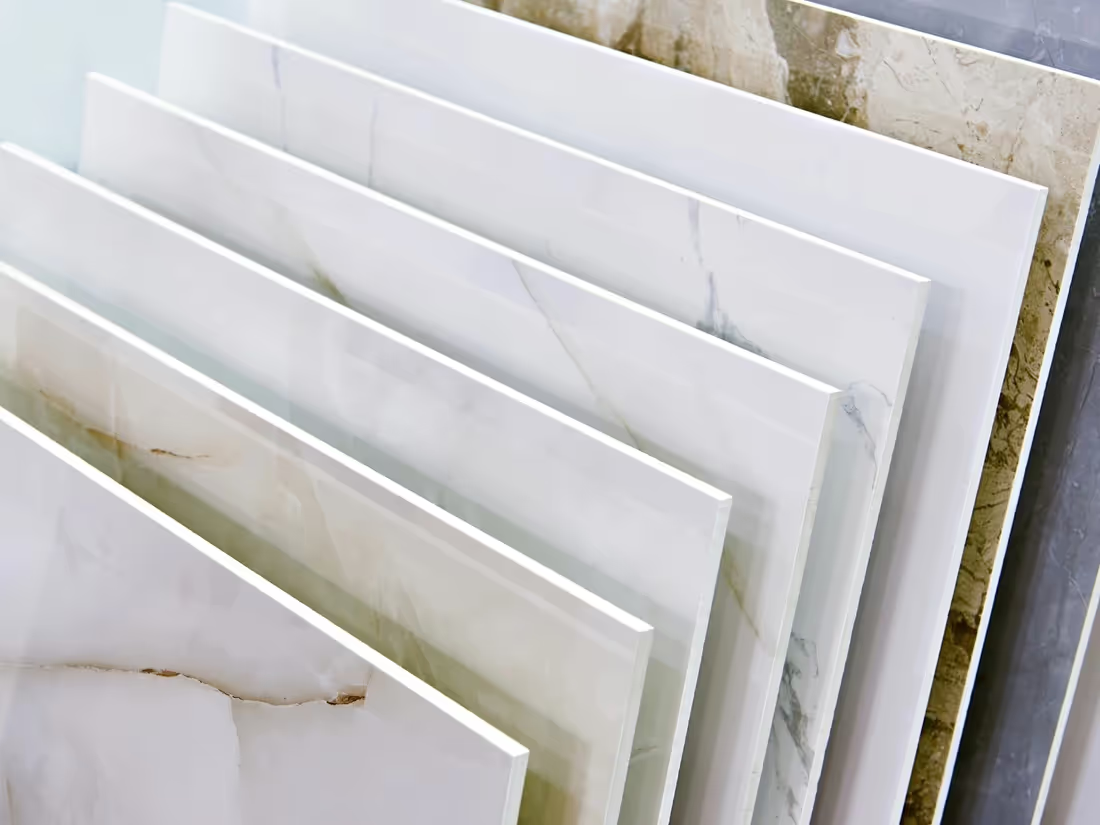
#5. Excellent for High Traffic Use
Flooring professionals often recommend porcelain tile over standard ceramic tile in areas where there's a lot of commotion and usage, as they are resistant to wear and breakage. If there is extra weight and pressure applied to the flooring, they are incredibly strong and resistant to damage.
This advantage makes porcelain tiles excel in outdoor applications, offering weather resistance just like natural stone but with superior consistency and lower maintenance requirements. From pool decks to outdoor patios, these tiles can withstand freeze-thaw cycles and UV exposure without fading or cracking.
#6. Fireproof and Heat Resistant
Another instance of positivity when comparing porcelain tile floors' pros and cons is that they're fireproof. While this material doesn't mean that the house is immune to catching on fire, instead, these tiles will not feed into making the fire worse. If there are smaller fires, porcelain tile floors will be able to withstand the heat.
Due to their excellent heat resistance, porcelain tiles are also compatible with radiant floor heating systems. This means you can enjoy porcelain’s beauty while adding the luxury of warm floors during those chilly Ohio winters.
#7. Trusted by Top Brands
Many of the industry’s most trusted manufacturers, including Daltile, Marazzi, and MSI, offer porcelain tile floors that blend style, strength, and safety. A great example is Quarzo Gray by MSI, which mimics the look of natural quartzite while delivering the durability and low maintenance of porcelain. An option like this is perfect for both indoor and outdoor use.
Porcelain Tile Disadvantages
.avif)
These are some of the cons of porcelain tiles and disadvantages of porcelain tiles that are worth considering before making a decision.
#1. Porcelain Tile Floors Have a High Cost
Porcelain tiles come with a higher upfront cost than many other flooring options, typically ranging from $3 to $35 per square foot, plus $5 to $15 for professional installation.
However, the long-term value is excellent, making these more expensive upfront costs worth it. With proper care, porcelain floors can last over 50 years, offering low maintenance and a much lower cost per year compared to flooring that needs replacing every 10-15 years.
#2. Complex Porcelain Tile Installation and Repairs
Installing porcelain tiles requires precision, skill, and the right tools — it's not a material that forgives mistakes. DIY attempts can easily lead to uneven layouts, cracked tiles, or poor adhesion. For the best results and long-term performance, we recommend investing in a high-quality, professional installation from the start.
#3. Heavy Weight
While porcelain's strength is a huge plus, it comes with a downside: significant weight. This can be a concern for upper floors, especially in older homes.
The good news is, it can be done! But before you start tiling, it's crucial to ensure your floor joists (the beams supporting your floor) can handle the added weight. A structural engineer can assess your home and recommend any necessary reinforcements to prevent future problems.
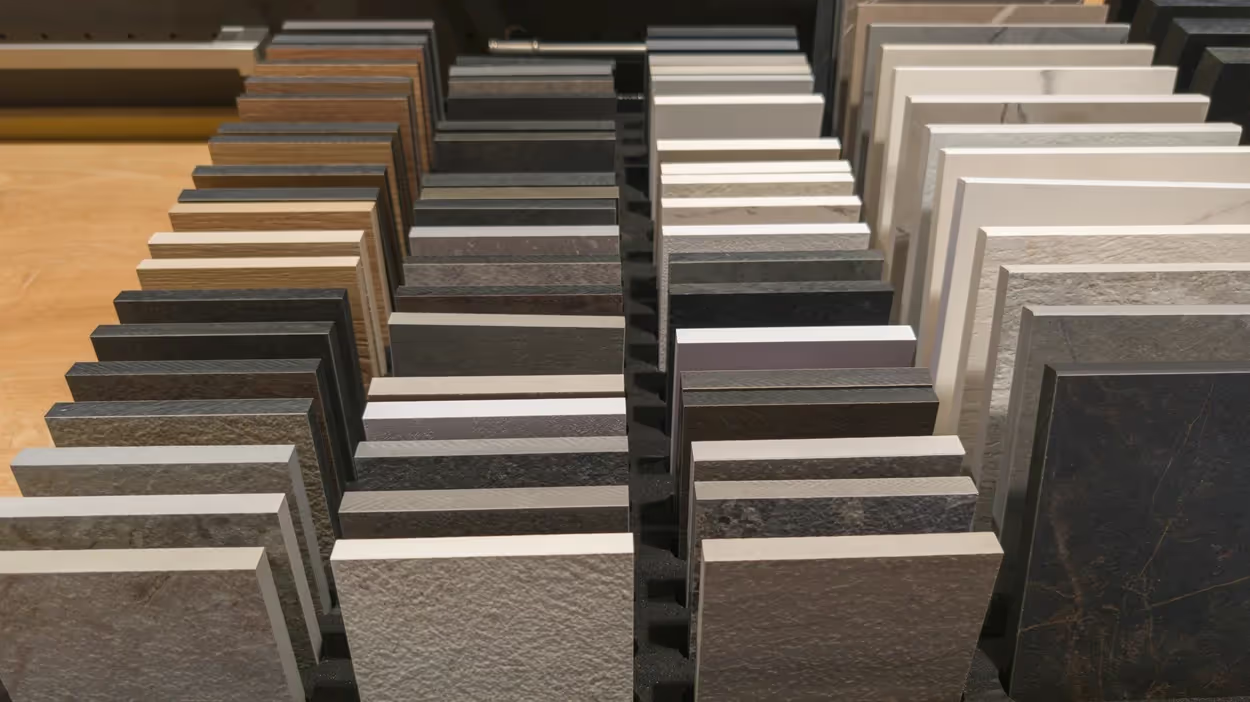
#4. Can Feel Cold Underfoot
Porcelain is a fantastic choice, but those chilly winter mornings can make you wish you had carpet!
Fortunately, you don't have to sacrifice porcelain's style and durability for warmth. As we've mentioned before, radiant heat flooring installed underneath your tiles transforms them into a comforting treat for your feet. Strategically placed area rugs also offer both a touch of warmth and a chance to express your personal style in high-traffic areas.
#5. Slippery When Wet: Safety First
Some porcelain tiles, especially those with a glossy finish, can be a safety hazard when wet. But fear not – there's no need to compromise style for safety! Opting for tiles with a textured finish provides the grip you need for peace of mind, especially crucial in bathrooms, entryways, or any area prone to spills.
#6. Grout Maintenance
While tiles are low-maintenance, grout lines are not. Grout is a porous material prone to mold, mildew, and stains if not properly sealed and cleaned. Over time, it may require professional cleaning or replacement. Regular upkeep with a damp rag and proper cleaners helps prevent discoloration and extends its lifespan.
#7. Sound Amplification
Porcelain's hard surface can amplify sounds, making footsteps and dropped objects seem louder than on other flooring. This is more noticeable in homes with high ceilings or open layouts. Adding rugs, strategically placing furniture, or investing in acoustic treatments can reduce echoes while maintaining the tile's beauty.
Is Porcelain Tile Right for You?
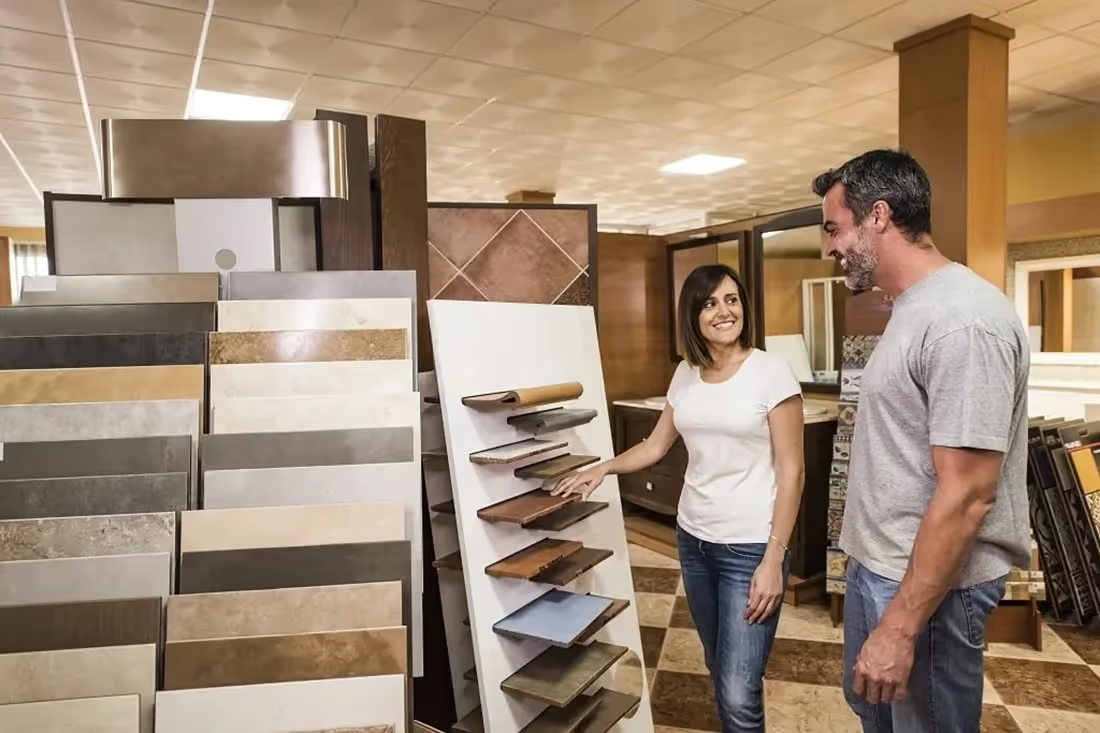
If you dream of a floor that combines stunning looks with incredible durability, porcelain tile might be the answer!
✅ Porcelain may be perfect if you want:
- Style & strength: Porcelain offers both high-end beauty and the toughness to handle everyday life, perfect for busy homes, kids, or pets.
- Easy living: Simple cleaning and minimal maintenance make porcelain a breeze to care for, freeing up your time for more important things.
- No worries in wet areas: Bathrooms, laundry rooms, entryways... porcelain's water resistance lets you relax, knowing your floors can handle spills and splashes.
🚫 But it may not be ideal if:
- Tight budget: While worth the investment, porcelain does come with a higher initial cost than some other flooring options.
- DIY dreams: Porcelain's hardness requires specialized tools and skills for a perfect installation. If you're a DIY enthusiast, other materials might be easier to work with.
- Warmth is a must: Porcelain can feel cool underfoot. If cozy floors are a top priority, consider alternative materials or explore options like radiant heating.
Choosing the perfect flooring is personal! Weigh the advantages and disadvantages of porcelain tiles carefully against your needs and lifestyle.
Get Started on Your Project
With its blend of strength, style, and low maintenance, porcelain offers a compelling case for many homes and commercial settings. Whether you're renovating a single room or your entire home, porcelain is equally beautiful and practical.
Experience the Stone Center difference! Since 1952, we've proudly served Ohio and surrounding states, offering high-quality stone products and unmatched service. Ready to discover your perfect porcelain tile? Explore our stunning collection in Cincinnati and Columbus, and let us help you elevate your home! Contact us today — we're here to help!
FAQ
.avif)
Jon, the owner of Stone Center, is a knowledgeable expert in natural stone products, specializing in various types of stone for landscaping and architectural projects. Passionate about promoting the beauty and versatility of natural stone, Jon aims to use these blogs to inspire readers with creative ideas to upgrade their homes.
How much does it cost to get a stone restored?
How much you end up spending to restore stone varies on the type of stone, the technique, and the stone’s current condition. Stone in good condition will cost less to restore, whereas stone that has a lot of wear and tear may require a longer restoration.




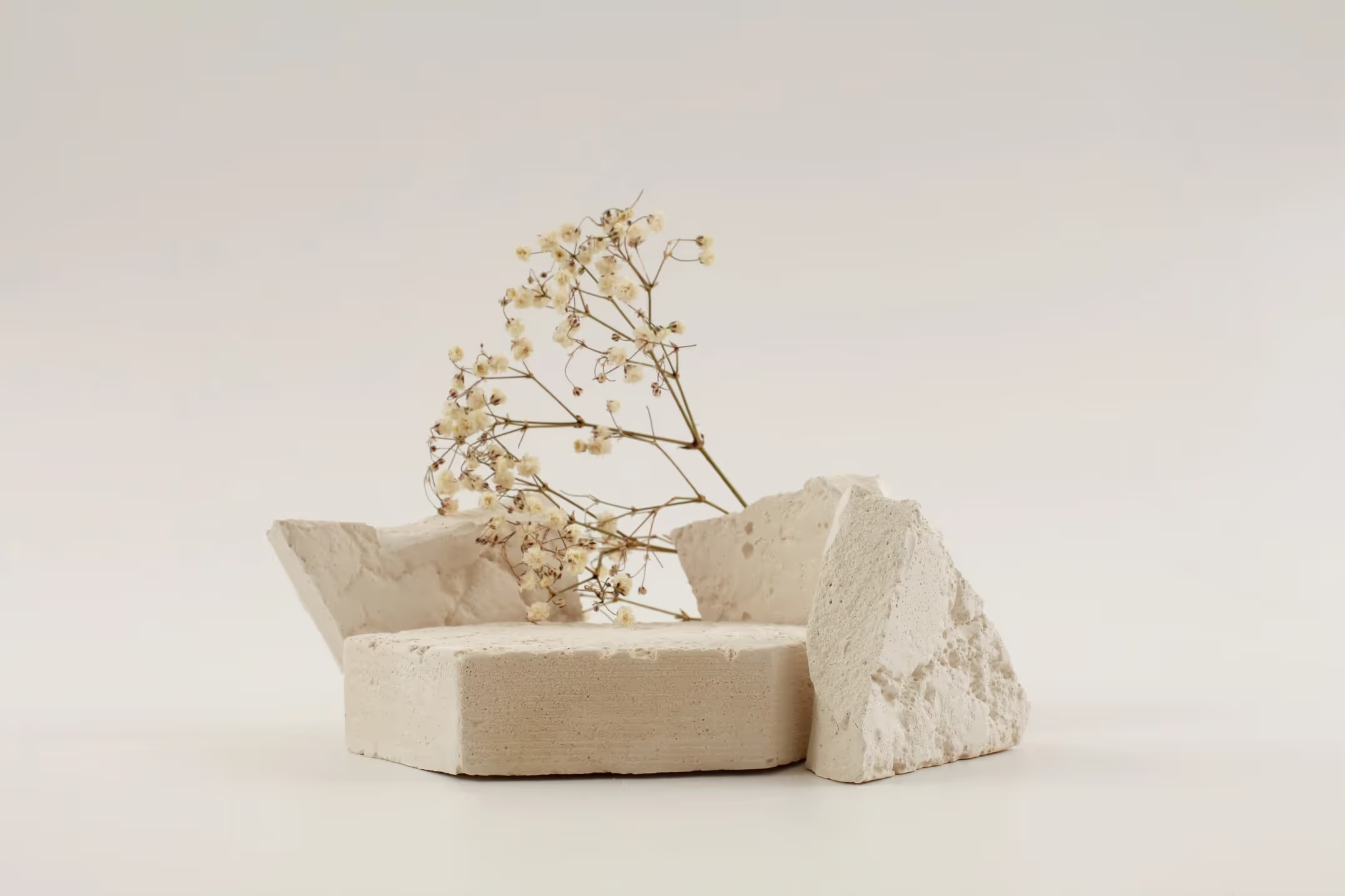
.avif)

.avif)
.avif)
.avif)
.avif)
